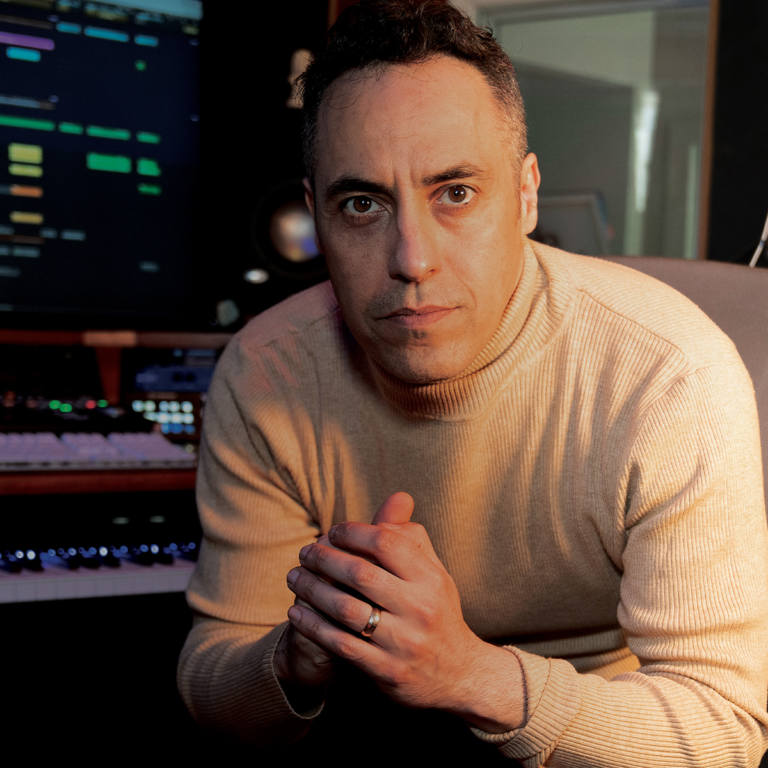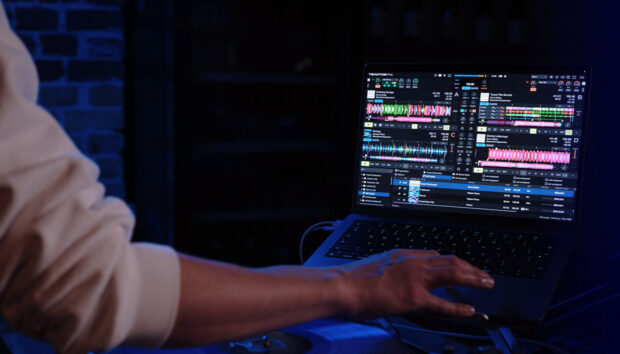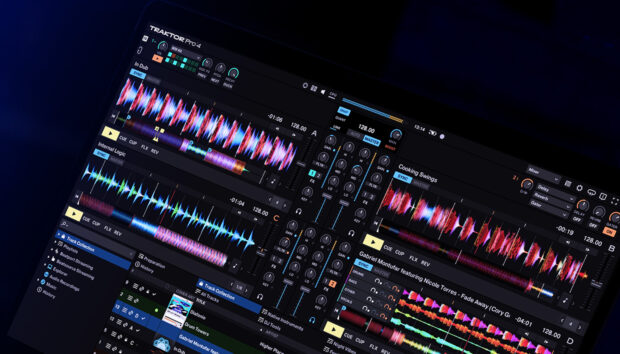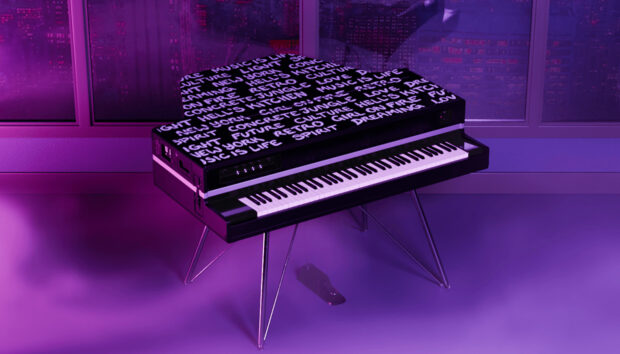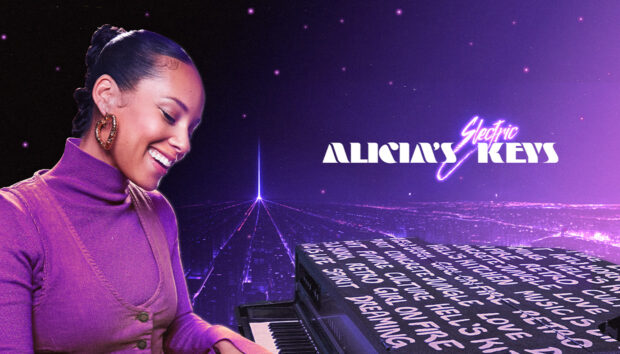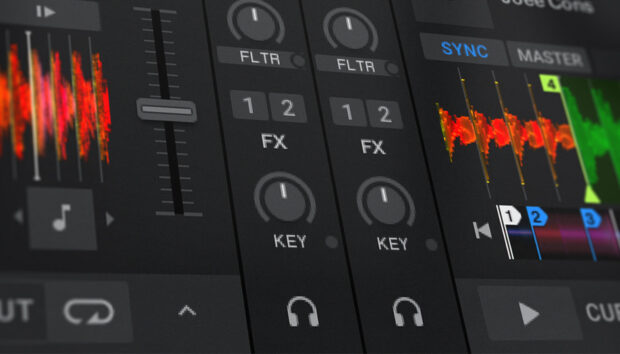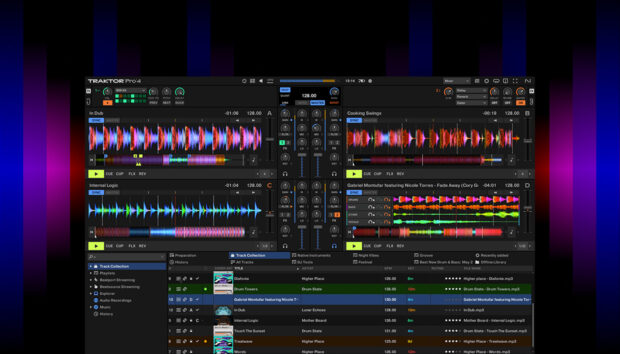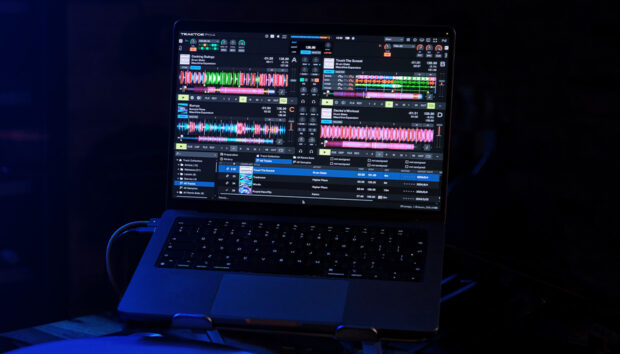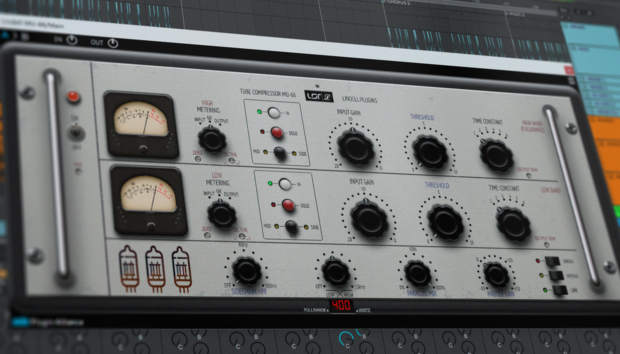Deathloop is a first-person-shooter game set in a world where time is both cyclical and eternal – not too different from the mission of composing music. In the game, two rival assassins are trapped in a timeloop on a mysterious island, tasked to kill all their targets, as leaving any of them alive resets the timeloop to repeat. The challenge of writing a score that fits the time-bending adventure of this game was the perfect puzzle for composer Tom Salta. We spoke with Salta about his work on Deathloop and his career in composing.
Having notched his belt with a number of impressive scores for famous franchises like HALO, WOLFENSTEIN and PRINCE OF PERSIA, Salta has developed a reputation for compelling and skillful scoring of major gaming releases. The fun in approaching Deathloop, he says, was that “it forced me to go beyond my comfort zone and delve into a musical journey of self-discovery in how I could create a fusion of late 60’s music through my own musical lens.”
You can hear this come to fruition in the main theme of the game “Welcome to Blackreef” – it is both taught and pliable, nostalgic and modern, with a ticking clock evoking the game’s twisting sense of time. But it wasn’t originally the main theme of the game. Salta explains “The original theme was approved, but about a month into the scoring process, I started to feel like we needed a main theme that better matched the vibrant and lively personality of the game… not to mention something that was better suited for hearing repeatedly throughout the game (i.e. looping!)” With this in mind, he went back to secretly write a different, more looping theme; hoping he could replace a cue that had already been approved with something that felt more fitting. When he’d arrived at “Welcome to Blackreef,” he presented it to Deathloop’s Audio Director. “He was surprised of course, given that he approved the first theme, but I explained my reasoning and I was grateful that he had an open mind to consider it. A couple of weeks later, he came back and agreed this was a better approach.”
Salta built the score focused on an aesthetic of classic late-60’s instrumentation – spring reverbs, guitars and Moog keys, evoking some of his favorite tunes of that era. “The fast-paced bass line at the end of “Updaam” pays tribute to one of the first YES songs I ever heard as a kid, “Roundabout”. It brings back some great memories for me. I also called upon my old friend, Jazz legend Philippe Saisse, to let loose on a Minimoog Model D solo in that same track. Many people assume that was an electric guitar, but it’s Philippe ripping on a 1971 Model D.” Salta also makes use of a massive array of sample libraries to make his ideas come to life – in some cases using up to 24 instances of Kontakt in one cue. “Different projects will lean more heavily on certain kinds of plugins stylistically than other projects, but all of them are going to lean heavily on Kontakt. It really is the industry standard sampler now.” Salta pairs it with his new favorite controller “I changed my controller a few years ago to a Komplete Kontrol 88, it’s really good… and that’s coming from someone who beats on controllers, I love this thing.”
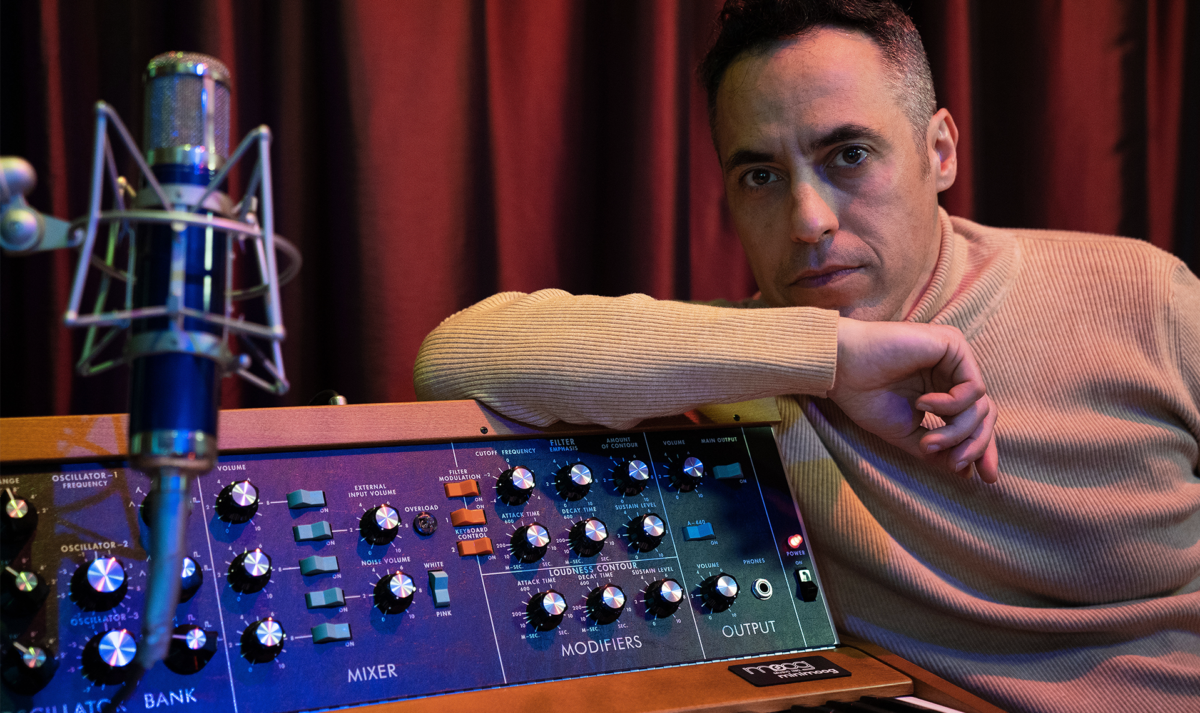
The score makes a lot of nods to a bygone era of music production as a way to help build a world that is both frozen in time and stuck in the present moment. “Space Invader” nods towards the campy 60s Batman TV series starring Adam West. Horn stabs and swinging drums, swells and jazzy orchestration, all harkening to West’s Batman. “I channeled my memories of him climbing up vertical buildings and having cheesy conversations with famous actors making cameo appearances. And of course, all those fun fight scenes with animated “Whap! Bang! Smash!” appearing as he beat up the bad guys.”
He also made sure to nod to 60s rock overlords Led Zeppelin in “The Complex” complete with smashing Bonham-inspired drums and Page-esque crunching guitar riffs.
While it certainly sounds fun to come up with great musical ideas that lock into the intricate world-building and unique concept of a game, keep in mind that there is real pressure involved. As a veteran of the scoring game, the levels only get harder as you progress – bringing fresh ideas to each project raises expectations for the next. “I can assure you that most all composers, including myself, feel a great deal of pressure as well! But over the many years I’ve been doing this, I’ve learned to simply have faith that when the music I create comes from an authentic place, it’s going to work. It’s going to have the originality and fresh sound needed, even when I’m being inspired by the music of others.”
Gaming is a tricky medium to score. Players can repeat a level or return to a space multiple times, changing the narrative all the time, and thus, the sound. Keeping that interesting is a challenge, but when the game’s entire concept hinges on time looping over and over, the need to keep music fresh and interesting becomes infinitely more complex. “The entire game is built upon a time looping mechanism, and you must visit the same places repeatedly at different times of the day. Musical variation was our answer to making sure things felt different, yet familiar.” One way that Salta is able to keep those ideas fresh and variable is by being able to quickly search for new sounds in Kontakt. “I love having as much as possible in one place. Because it makes it easy to search. In Deathloop, for example, I relied quite a bit on sampled guitar libraries like Session Guitarist. Although I do hire guitar players, as a composer, I want to make those decisions and write everything I can ahead of time. I don’t want to rely on a session player to come up with those parts. So I’ll use the Scarbee Rickenbacker Bass, and my drum kits and all of my orchestral sample libraries coming through Kontakt.”
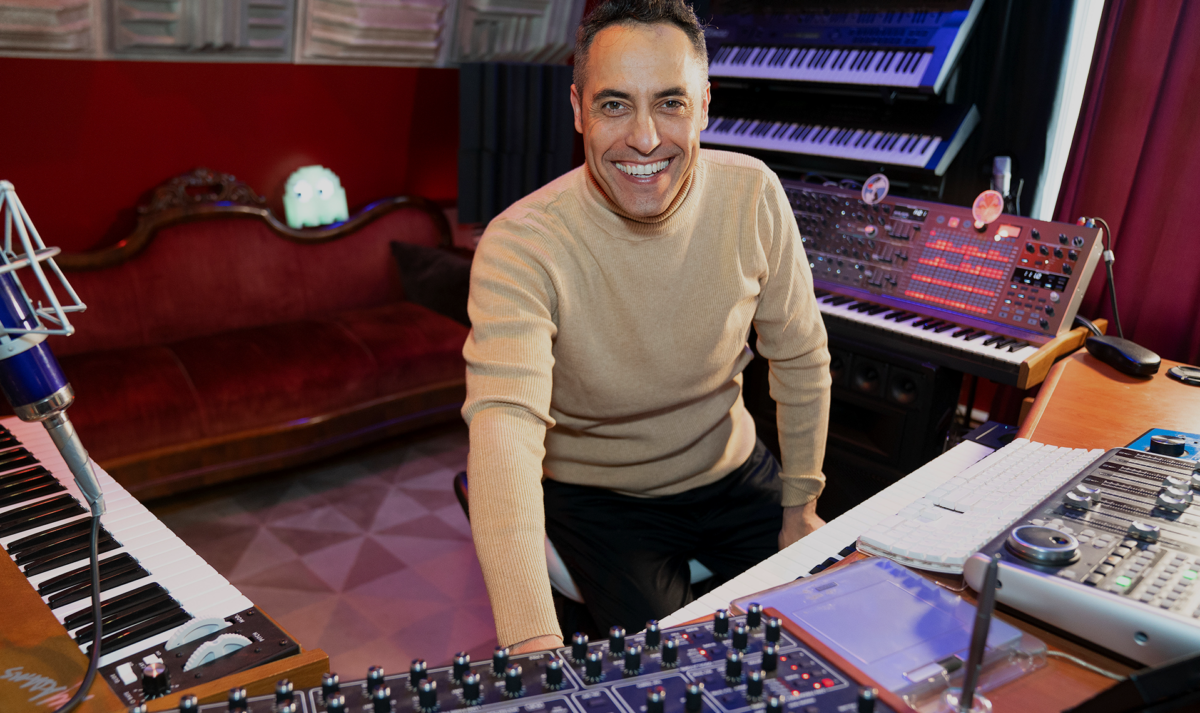
That type of creative dexterity and insight doesn’t come overnight. Salta’s been honing his craft for decades. He started in the early 1990s, touring with R&B superstars like Bobby Brown and Mary J. Blige as a keyboard tech and sound designer. Throughout that decade he’d continue producing records and songwriting, even working on Cher’s megahit “Believe” and producing remixes for artists like Whitney Houston and Peter Gabriel. While he was living his dream, becoming a record producer, dark clouds started to appear for the record business by 2001. Like many in the record business, Salta was seeing a paradigm shift in how music was being made. It was while he was playing video games that he started to see a new chapter. “I felt I needed to change direction to survive this paradigm shift in the music business, and it was during this same timeframe that I began to resonate with the new breed of video game music coming from the West, with video games like Halo, Rainbow Six and Prince of Persia. I remember the day I had the epiphany and decided that THAT would be my future. Video game music combined the two things I loved the most my entire life, video games and music.”
With a new vision in mind, Salta signed with a publisher and began producing music aimed at licensing to TV, film and games. Before he knew it, he was landing placements on major games like Microsoft’s Rallisport Challenge 2 and then soon after, placements in Crackdown, Project Gotham Racing, and the Fast and the Furious. His first big scoring assignment was Need For Speed Underground 2. From there, momentum took hold and he has steadily kept working in the business.
Of course, any musician’s story boiled down to a few paragraphs might look easy, but Salta has learned some lessons along the way. He says “I quickly learned to lose my “artist ego” and understand that making music for games is a team effort. Video game music isn’t about the composer – it’s about the experience of playing the game.” He also developed a keen sense for the value of consistently adding variation and evolving musical ideas. “By its very nature, video game music can get repetitive and so it’s critical that the composer anticipates this and comes up with ways to keep the music fresh, even when it’s heard many times over and over.”
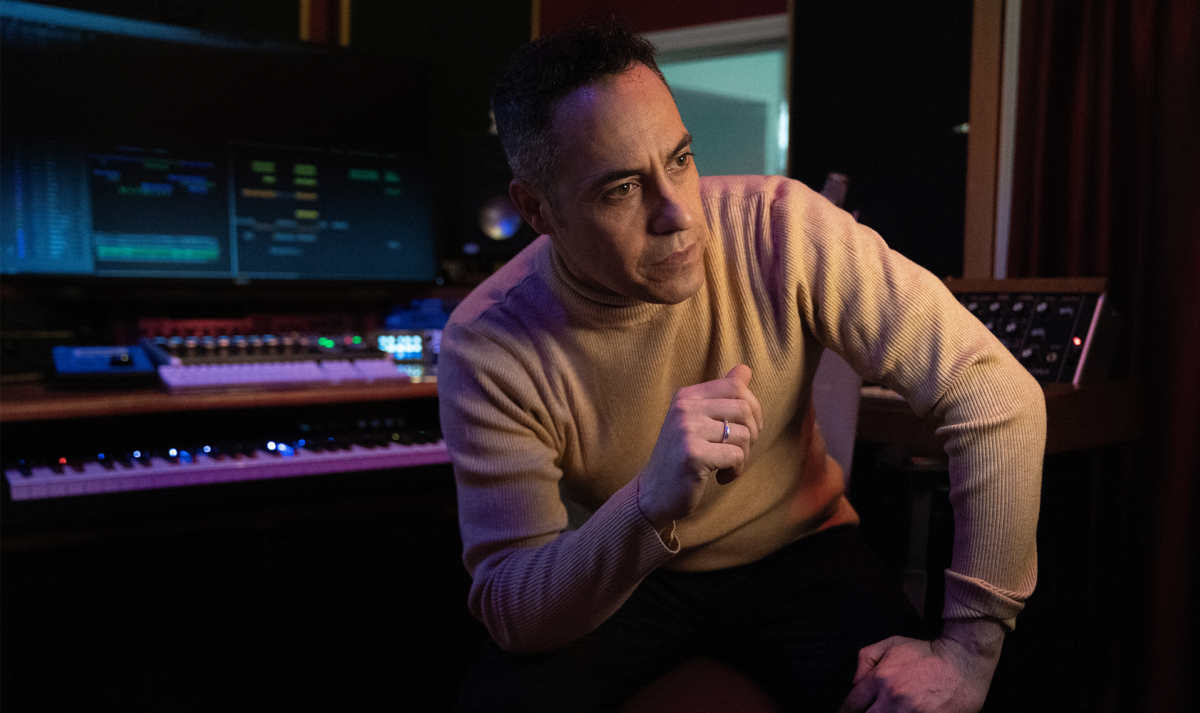
When asked what he might say to musicians looking to pursue work in game scoring, he has a lot to say. He says, “I always encourage my students, mentees and all young composers to try and connect with their creative center, and avoid getting caught up in what everyone else thinks. The best material always emerges when it comes from an authentic place.” Salta suggests that aspiring game composers “try to really learn from the greats and study effective game music. Seek out resources that teach about the basics of making music for games. Learn about the business.” He believes in the need for these resources so much that he’s built his own. He’s created a masterclass called “Game Music Essentials” which he says covers “all the mechanics of how game music works and how it is composed but there is a very valuable video exclusively on the business side.”
As you might expect, Tom Salta is not taking it easy after the success of Deathloop. He’s been quietly working on something he can finally talk about – the score to the latest chapter in the survival horror game series “Outlast” due for release later in 2022. You can see some of the behind the scenes development of his score here.
In addition, he’s partnered with Universal Music Group to release two singles for his new album “The Sleep Project” to debut on World Sleep Day.
It’s safe to say that Tom Salta has mastered the art of stretching, folding, looping and expanding time. With Deathloop and his upcoming projects, he’s breaking into deeper levels of the game-scoring artform, and weaving together all of his passions and influences along the way.








